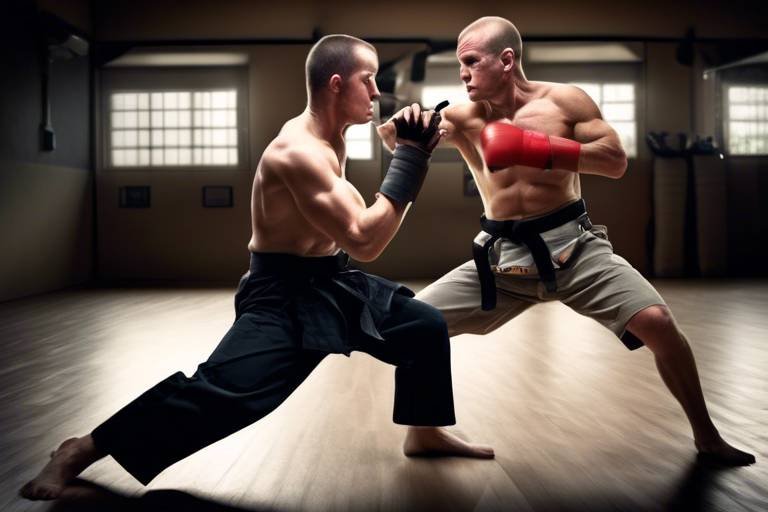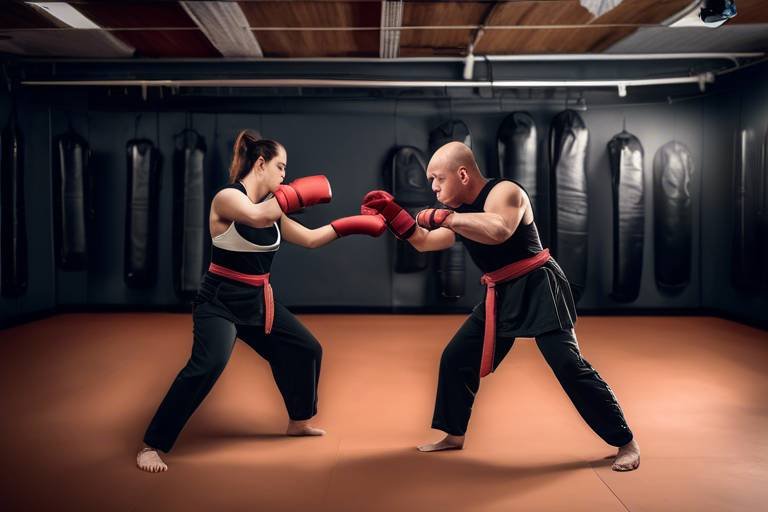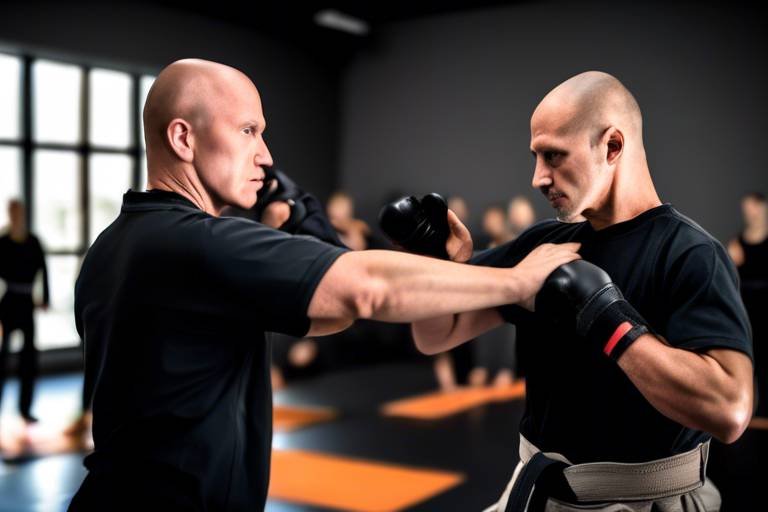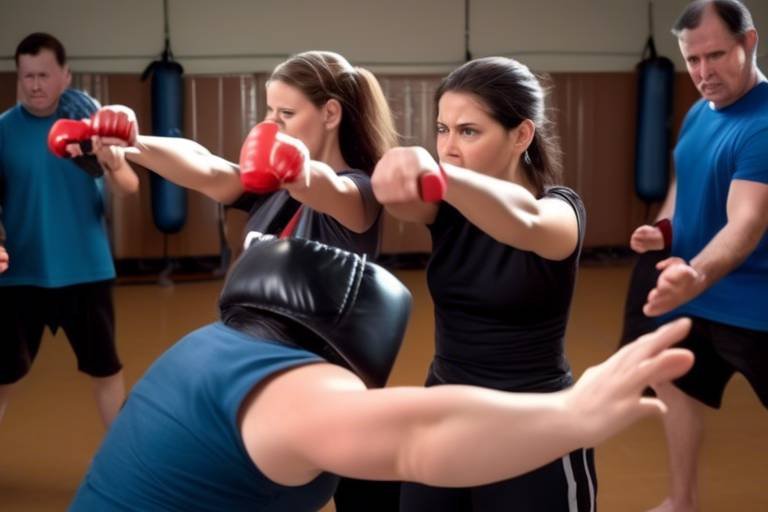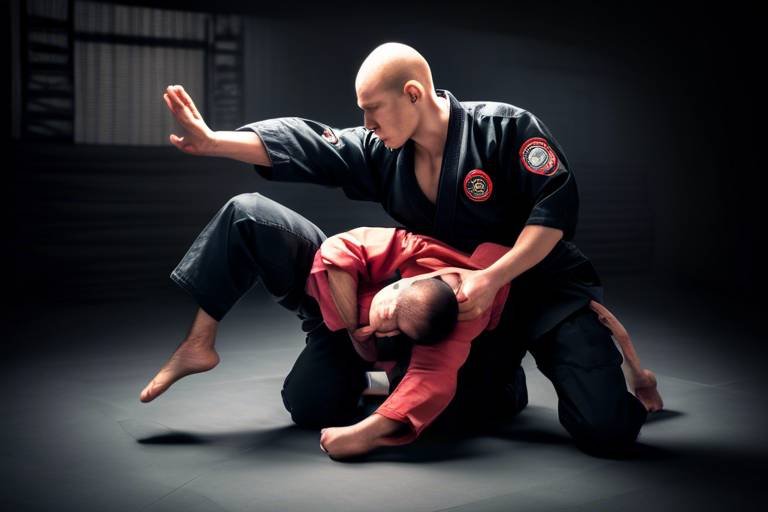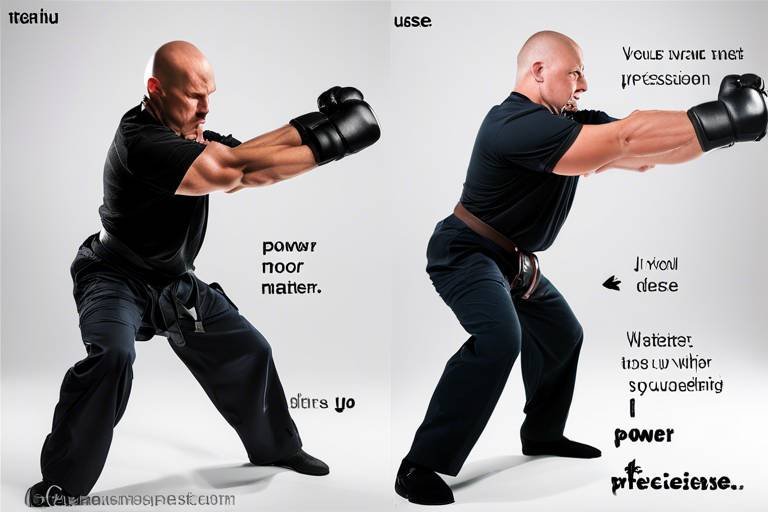The Importance of Stamina in Effective Self-Defense Application
When it comes to self-defense, many people think about the techniques, the moves, or even the tools they might need. But what often gets overlooked is a fundamental aspect that can make all the difference: stamina. Imagine being in a high-pressure situation where every second counts, and your body starts to give in to fatigue. Suddenly, that fancy kick or punch you practiced becomes a struggle. This is why understanding and improving your stamina is crucial for anyone interested in self-defense. In this article, we will delve into how endurance enhances performance, improves reaction times, and ultimately increases your effectiveness when faced with danger.
Stamina is more than just a buzzword in fitness; it refers to your ability to sustain prolonged physical or mental effort. Think of it as the fuel that keeps your engine running during a confrontation. In self-defense, having adequate stamina can mean the difference between escaping danger and succumbing to fatigue. When your body is tired, your mind can also become sluggish, leading to poor decision-making and ineffective responses. Thus, building stamina isn't just about physical fitness; it's about preparing yourself mentally and emotionally for the challenges that lie ahead.
Stamina directly impacts a person's ability to respond to threats. When your endurance is high, you can react faster, think clearer, and perform better under pressure. Consider this: if you were to find yourself in a confrontation, would you rather be the one who can keep moving and thinking, or the one who gasps for breath and struggles to stay upright? Here are some key ways that stamina plays a critical role in self-defense:
- Reaction Time: A well-conditioned body can respond to threats more quickly, allowing for timely defensive actions.
- Decision-Making: Mental fatigue can cloud judgment. High stamina helps maintain clarity in stressful situations.
- Overall Performance: With better endurance, you can execute techniques effectively, even after prolonged exertion.
Physical endurance is essential in self-defense. It's not just about being fit; it's about having the capability to maintain strength and agility during a confrontation. When your body is conditioned to endure, you can utilize effective defense techniques without tiring out quickly. This endurance comes from a combination of cardiovascular fitness and muscular endurance, both of which are vital for optimal performance.
Cardiovascular fitness enhances oxygen delivery to your muscles, which is critical for sustaining energy levels during prolonged physical exertion. To improve your cardiovascular health, consider incorporating the following exercises into your routine:
- Running or Jogging: Great for building endurance and stamina.
- Cycling: A low-impact option that still boosts cardiovascular fitness.
- Swimming: An excellent full-body workout that enhances lung capacity.
These activities not only improve your stamina but also prepare you for the demands of self-defense situations, where every breath counts.
Muscular endurance is equally important, as it allows you to perform self-defense techniques repeatedly without succumbing to fatigue. Think of it this way: if you can only throw a punch once before your arm gives out, how effective will you be in a real-life scenario? To build the necessary muscle endurance, focus on strength training exercises that target multiple muscle groups. Here are a few effective exercises:
- Push-ups: Great for upper body strength and endurance.
- Squats: Builds lower body strength and stamina.
- Planks: Enhances core stability, which is crucial for maintaining balance during a confrontation.
Mental stamina is just as important as physical endurance in self-defense. In high-pressure situations, your mind needs to be as sharp as your body. Mental resilience can help you remain calm and focused, enhancing your ability to respond effectively. Just like a computer that can crash under heavy load, your mind can also falter if it’s overwhelmed. Techniques such as visualization, meditation, and controlled breathing can help improve your mental stamina, allowing you to think clearly even when the heat is on.
Effective training programs can significantly improve stamina. A well-rounded approach that includes both physical and mental training will prepare you for the unexpected. Here are some training methods that can enhance your stamina:
Interval training is an effective method for building stamina. By alternating between periods of intense activity and rest, you can improve your cardiovascular fitness and overall endurance. This type of training mimics the unpredictable nature of self-defense situations where you might need to exert maximum effort in short bursts.
Strength and conditioning routines are vital for enhancing stamina. A balanced approach to strength training can support sustained performance during self-defense encounters. Focus on compound movements that engage multiple muscle groups, as they will help build the functional strength needed for effective self-defense.
Q: How long does it take to improve stamina?
A: While individual results may vary, consistent training over a period of weeks to months can lead to significant improvements in stamina.
Q: Can I improve my stamina without a gym membership?
A: Absolutely! Many bodyweight exercises and outdoor activities can effectively enhance your stamina without needing a gym.
Q: Is mental stamina trainable?
A: Yes! Techniques like mindfulness, meditation, and visualization can help you build mental resilience.

Understanding Stamina
Stamina is more than just a buzzword thrown around in fitness circles; it’s a vital component of self-defense that can literally mean the difference between safety and danger. When we talk about stamina, we're referring to the ability to sustain prolonged physical or mental effort. Imagine being in a high-pressure situation where every second counts. Wouldn’t you want to have the energy to react swiftly and effectively? In self-defense, having adequate stamina can mean the difference between escaping danger and succumbing to fatigue during a confrontation.
Think of stamina as your body’s fuel tank. Just like a car needs gas to keep running, your body requires energy to maintain performance under stress. This energy allows you to keep moving, think clearly, and execute self-defense techniques without faltering. When you're faced with a threat, the adrenaline kicks in, but if your stamina isn't up to par, that adrenaline rush can quickly turn into exhaustion, leaving you vulnerable. So, how do we build this stamina? It starts by understanding its two main components: physical and mental stamina.
Physical stamina is often what people think of first. It’s about your body’s ability to perform tasks for extended periods without tiring. This includes everything from how long you can run to how many push-ups you can do before your muscles scream for mercy. On the other hand, mental stamina is equally crucial. It’s about maintaining focus, composure, and decision-making ability under stress. In self-defense, you need both types of stamina to be effective. If your body is fit but your mind is racing, or vice versa, you might find yourself in a sticky situation.
To put it simply, stamina is your ally in self-defense. It enhances your performance, improves your reaction times, and increases your overall effectiveness in those high-pressure moments. So, if you’re serious about self-defense, it’s essential to incorporate stamina training into your routine. After all, what good are self-defense techniques if you can’t execute them when it matters most?

The Connection Between Stamina and Self-Defense
When it comes to self-defense, stamina is not just a nice-to-have; it's a critical component that can literally mean the difference between safety and danger. Imagine being in a high-pressure situation where every second counts. Your ability to react quickly and effectively hinges on your stamina. Without it, even the best self-defense techniques can fall flat. So, how does stamina connect to self-defense? Let's break it down.
First off, reaction time is a key factor. In a confrontation, your body needs to respond almost instinctively. If you’re running low on energy, your reflexes slow down, and your decision-making becomes clouded. It’s like driving a car with a low fuel tank; you might make it to your destination, but there’s a chance you’ll stall at the worst moment. A well-conditioned body, on the other hand, allows for quicker, more decisive actions, giving you an edge when it matters most.
Moreover, stamina directly impacts your decision-making abilities. In stressful situations, the brain can become overwhelmed, leading to poor choices. But when your body is fit and your energy levels are high, your mind can remain clear and focused. Think of it as a well-oiled machine; all parts need to work together seamlessly to function optimally. High stamina allows for better cognitive function, enabling you to assess the situation accurately and choose the best course of action.
Additionally, the overall performance in self-defense scenarios is heavily influenced by stamina. In a physical altercation, maintaining strength and agility is crucial. If you tire quickly, even a single opponent can become a formidable challenge. On the flip side, having the stamina to keep moving and defending yourself effectively can turn the tide in your favor. It’s not just about throwing punches or executing techniques; it’s about being able to do so repeatedly and with precision, which stamina directly supports.
To put it simply, stamina is the backbone of effective self-defense. It enhances reaction time, sharpens decision-making, and boosts overall performance. Without adequate stamina, your self-defense skills may not reach their full potential. So, whether you’re training for self-defense or just looking to improve your physical fitness, remember that stamina is key. It’s not just about surviving an encounter; it’s about thriving in it.

Physical Endurance
When it comes to self-defense, is more than just a buzzword—it's a game-changer. Imagine being in a high-pressure situation, where every second counts, and your body starts to feel like lead. Without adequate stamina, even the best techniques can falter. Physical endurance allows you to maintain your strength and agility when it matters most, which can be the difference between escaping unscathed and succumbing to fatigue.
So, what exactly contributes to physical endurance in the context of self-defense? It boils down to two critical components: cardiovascular fitness and muscular endurance. Both of these elements work in tandem to ensure that your body can perform at its peak, even when faced with stressful and demanding situations. Think of cardiovascular fitness as the engine of a car; without a powerful engine, the car can't perform well, no matter how sleek the body is.
Cardiovascular fitness enhances oxygen delivery to your muscles, which is essential for prolonged exertion. This means that when you're in a self-defense scenario, your heart and lungs are working overtime to supply your muscles with the oxygen they need to keep moving. Exercises such as running, cycling, and swimming are excellent for boosting cardiovascular health. They not only improve your stamina but also help you recover faster between bouts of activity, allowing you to maintain your performance over time.
On the other hand, muscular endurance is all about your muscles' ability to keep going without tiring. This is particularly important in self-defense, where you may need to perform techniques repeatedly. Imagine trying to fend off an attacker; if your muscles tire quickly, your movements become sluggish and ineffective. Strength training exercises, such as push-ups, squats, and resistance band workouts, can significantly enhance your muscular endurance. By incorporating these exercises into your routine, you prepare your body to withstand the physical demands of a confrontation.
To put it all into perspective, here’s a quick comparison of how cardiovascular fitness and muscular endurance contribute to self-defense:
| Component | Benefits for Self-Defense |
|---|---|
| Cardiovascular Fitness | Improves oxygen delivery, enhances endurance, and speeds up recovery. |
| Muscular Endurance | Allows for repeated execution of techniques without fatigue, maintaining effectiveness. |
In conclusion, building your physical endurance is not just about hitting the gym; it’s about understanding how your body works and preparing it for the unexpected. By focusing on both cardiovascular fitness and muscular endurance, you set yourself up for success in self-defense situations. Remember, when the adrenaline is pumping and the stakes are high, your body’s ability to keep going can make all the difference.
- What exercises can improve my cardiovascular fitness for self-defense? Activities like running, swimming, and cycling are excellent choices.
- How often should I train for muscular endurance? Aim for at least two to three strength training sessions per week.
- Can I improve my stamina without a gym? Absolutely! Bodyweight exercises and outdoor activities can be very effective.
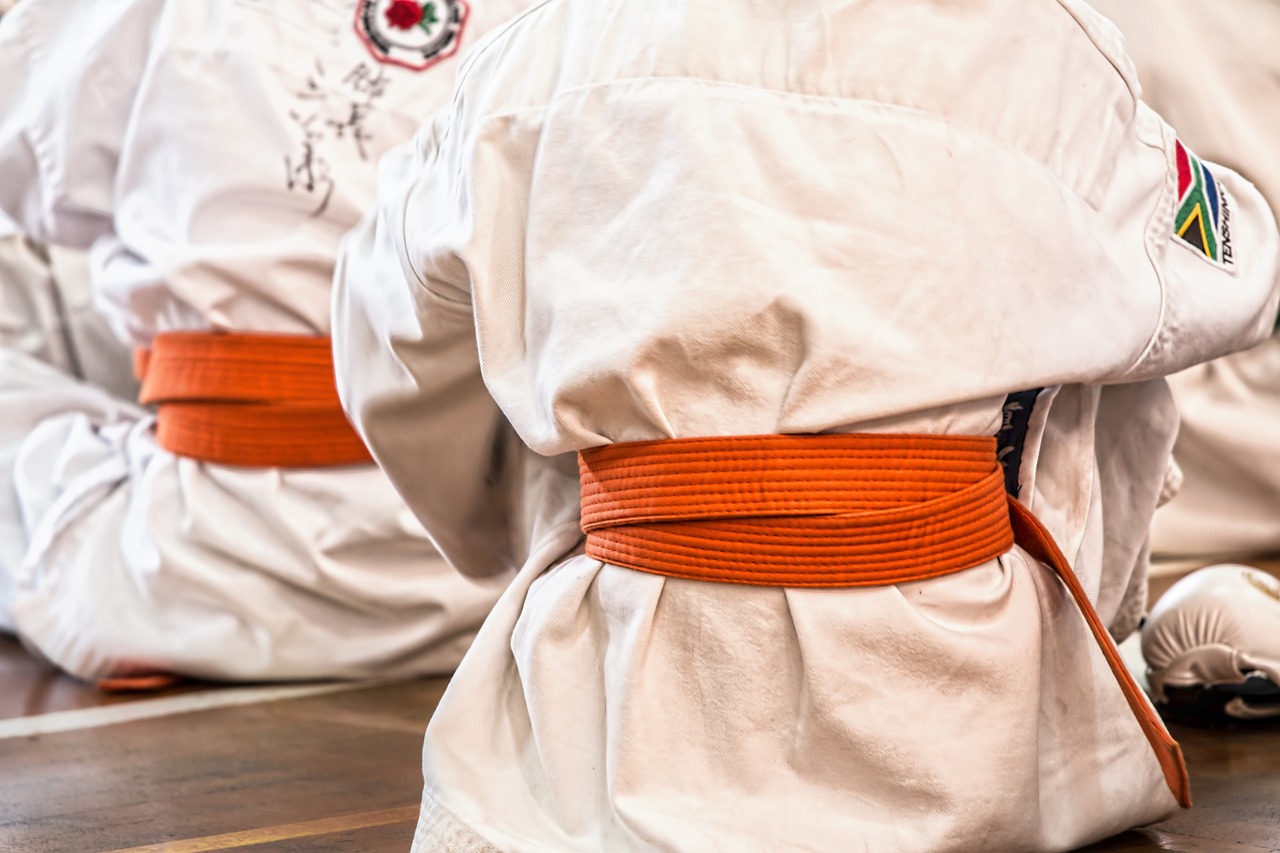
Cardiovascular Fitness
When we talk about , we're diving into one of the most critical aspects of stamina that can significantly impact your self-defense capabilities. Imagine being in a high-pressure situation, your heart racing, and every muscle in your body screaming for relief. Now, picture having the endurance to push through that fatigue, maintaining your agility and strength when it matters most. That's the power of cardiovascular fitness.
Cardiovascular fitness primarily relates to how efficiently your heart, lungs, and blood vessels work together to supply oxygen to your muscles during prolonged physical activity. The better your cardiovascular system functions, the more oxygen your body can deliver to your muscles, enhancing your stamina and performance. In a self-defense scenario, this means you can react quicker, move faster, and endure longer, giving you a significant edge over an attacker.
To build up your cardiovascular fitness, consider incorporating various exercises into your routine. Here are some effective options:
- Running or Jogging: A classic choice that improves heart health and builds endurance. Start with shorter distances and gradually increase as your fitness improves.
- Cycling: Whether on a stationary bike or the open road, cycling is a fantastic way to enhance cardiovascular health while being gentle on the joints.
- Swimming: This full-body workout not only boosts your heart rate but also builds muscle strength, making it a perfect fit for self-defense preparation.
- Jump Rope: A simple yet effective exercise that elevates your heart rate and improves coordination, crucial for self-defense movements.
Incorporating these activities into your training routine can lead to significant improvements in your cardiovascular fitness. But remember, the key is consistency. Aim for at least 150 minutes of moderate aerobic activity each week, or 75 minutes of vigorous activity, according to the American Heart Association. This commitment can transform your stamina, making you more resilient in self-defense situations.
As you progress, you might want to track your improvements. Consider using a simple chart to monitor your heart rate during workouts, noting how quickly your heart rate returns to normal after exercise. This can be a great way to gauge your cardiovascular fitness level over time.
| Exercise | Duration | Benefits |
|---|---|---|
| Running | 30 minutes | Improves heart health and builds endurance |
| Cycling | 45 minutes | Enhances cardiovascular health with low impact |
| Swimming | 30 minutes | Full-body workout that builds muscle strength |
| Jump Rope | 15 minutes | Boosts heart rate and improves coordination |
Ultimately, building cardiovascular fitness is not just about running marathons or cycling long distances; it's about preparing your body for the unexpected. In self-defense, where every second counts, having that extra stamina can be the deciding factor in ensuring your safety. So lace up those sneakers, hit the gym, or dive into the pool, and start enhancing your cardiovascular fitness today!

Muscular Endurance
When it comes to self-defense, having is like having a secret weapon in your arsenal. Imagine being in a high-pressure situation where every second counts, and your body needs to respond quickly and effectively. Muscular endurance allows you to perform self-defense techniques repeatedly without succumbing to fatigue. This means that when the adrenaline is pumping and the stakes are high, your body can keep up with your mind's intentions.
So, what exactly is muscular endurance? It's the ability of your muscles to sustain repeated contractions against resistance for an extended period. In a self-defense scenario, this could mean the difference between successfully executing a defensive move or falling short due to exhaustion. Think of it as the fuel that keeps your engine running when the going gets tough.
To build muscular endurance, it's essential to engage in specific strength training exercises that focus on higher repetitions with moderate weights. Here are a few effective exercises that can help enhance your muscular endurance:
- Bodyweight Exercises: Push-ups, squats, and lunges are fantastic for building endurance. They can be done anywhere and require no equipment.
- Resistance Training: Using lighter weights with higher repetitions (15-20 reps) can significantly boost endurance. Think of exercises like bench presses or deadlifts, but with a focus on form and repetition rather than maximum weight.
- Circuit Training: This involves performing a series of exercises back-to-back with minimal rest. Not only does this enhance muscular endurance, but it also improves cardiovascular fitness.
Incorporating these exercises into your routine will not only build strength but also improve your ability to withstand the physical demands of a self-defense situation. Remember, it’s not just about how strong you are; it’s about how long you can sustain that strength when it matters most.
Additionally, it's crucial to allow for adequate recovery time between workouts. Muscles need time to repair and grow stronger. This means that incorporating rest days and proper nutrition into your training plan is just as important as the workouts themselves. Fuel your body with the right nutrients—think proteins, healthy fats, and carbohydrates—to support muscle recovery and growth.
Ultimately, enhancing your muscular endurance is an investment in your self-defense capabilities. The stronger and more resilient your muscles are, the more confidently you can handle any situation that comes your way. So, gear up, get moving, and start building that endurance, because in self-defense, every bit of strength counts!
- What is the best exercise for building muscular endurance? Bodyweight exercises like push-ups and squats are excellent for building muscular endurance as they can be done anywhere and require no equipment.
- How often should I train for muscular endurance? Aim for at least 2-3 times a week, allowing for recovery between sessions to let your muscles repair and grow stronger.
- Can I build muscular endurance without weights? Absolutely! Bodyweight exercises can effectively enhance muscular endurance without the need for weights.

Mental Stamina
Mental stamina is often the unsung hero in the realm of self-defense. While many focus on physical prowess, the ability to stay mentally sharp and resilient under pressure can be the deciding factor in a critical situation. Imagine being in a high-stress encounter where your heart is racing, and your mind is clouded with fear. In such moments, having strong mental stamina allows you to cut through the chaos, enabling you to make quick, effective decisions that could mean the difference between safety and danger.
Just like a marathon runner trains their body to endure long distances, individuals must also train their minds to handle stressful situations. Mental stamina involves not only the ability to remain calm but also the capacity to think clearly and strategically. It’s about developing a mindset that can withstand the pressures of confrontation. Techniques like visualization, meditation, and mindfulness can play a pivotal role in enhancing this mental endurance. By regularly practicing these techniques, you can train your brain to remain focused, even when the stakes are high.
Moreover, mental stamina contributes significantly to your overall performance in self-defense scenarios. When faced with an unexpected threat, your body might instinctively react, but it’s your mind that must guide those reactions. If you’re mentally fatigued or overwhelmed, your response time may lag, and your decision-making could falter. This is where the concept of mental rehearsal comes into play. By mentally simulating potential self-defense situations, you can prepare your mind to react swiftly and effectively, honing your instincts for when it truly matters.
To further illustrate the importance of mental stamina, consider the following aspects:
- Focus: Maintaining concentration in chaotic situations allows you to assess threats accurately and respond appropriately.
- Emotional Regulation: Being able to manage fear and anxiety can prevent panic, allowing for clearer thinking.
- Adaptability: A strong mental framework enables you to adapt your strategy based on the evolving dynamics of the confrontation.
In conclusion, mental stamina is not merely an abstract concept; it is a vital component of effective self-defense. By investing time in training both your mind and body, you can cultivate an unshakeable resilience that empowers you to face any challenge with confidence. Remember, in the heat of the moment, it’s not just about how strong you are physically; it’s about how strong you are mentally.
Q1: How can I improve my mental stamina for self-defense?
A1: You can improve mental stamina through techniques such as visualization, meditation, and regular practice of mindfulness exercises. These methods help train your mind to stay focused and calm under pressure.
Q2: Is physical stamina more important than mental stamina in self-defense?
A2: Both physical and mental stamina are crucial. While physical stamina allows you to execute techniques effectively, mental stamina ensures you can make sound decisions and remain composed during a confrontation.
Q3: Can mental fatigue affect my physical performance in self-defense?
A3: Absolutely. Mental fatigue can lead to slower reaction times and poor decision-making, which can compromise your physical performance in a self-defense situation.
Q4: What exercises can enhance my mental stamina?
A4: Activities such as yoga, meditation, and even strategic games like chess can help improve your mental stamina by enhancing focus, patience, and resilience.

Training for Stamina
When it comes to self-defense, having stamina is like having a secret weapon in your arsenal. It's not just about knowing the moves; it’s about being able to execute them effectively when it counts the most. Training for stamina is crucial because it enhances both physical and mental endurance, allowing you to respond swiftly and decisively in high-pressure situations. Think of stamina as the fuel in your tank; without it, you might stall just when you need to accelerate. So, how do we build this vital quality? Let's dive into some effective training methods!
One of the most effective ways to boost your stamina is through interval training. This method involves alternating between high-intensity activities and rest periods, which can significantly improve your cardiovascular fitness. For instance, you might sprint for 30 seconds and then walk for a minute. This not only enhances your heart and lung capacity but also teaches your body to recover quickly, a crucial skill in self-defense scenarios where every second counts. Imagine being in a confrontation and having the ability to regain your breath and composure while your opponent tires out. That’s the power of interval training!
Another key component of stamina training is strength and conditioning. Incorporating a balanced approach to strength training can greatly enhance your muscular endurance. You want to ensure that your muscles can perform self-defense techniques repeatedly without fatigue setting in. This means lifting weights, doing bodyweight exercises, and even engaging in resistance training. By building strength, you're not just preparing your muscles for a single explosive movement; you're training them to maintain that power over time. For example, exercises like squats, push-ups, and planks can help develop the core and upper body strength necessary for effective self-defense.
To give you a clearer picture, here’s a simple table showcasing some effective exercises for stamina training:
| Exercise | Type | Benefits |
|---|---|---|
| Interval Sprints | Cardio | Improves cardiovascular fitness and recovery time |
| Bodyweight Squats | Strength | Enhances lower body strength and endurance |
| Push-Ups | Strength | Builds upper body strength and core stability |
| Planks | Core | Improves core strength and overall stability |
Additionally, don’t underestimate the importance of mental stamina. Just as your body requires conditioning, your mind needs training too. Engaging in mindfulness exercises, meditation, or even tactical decision-making drills can enhance your focus and calmness under pressure. Picture yourself in a stressful situation: if your mind is calm, you can think clearly and make better decisions, which is just as important as physical prowess. It’s all about being prepared, both physically and mentally, to tackle any challenge that comes your way.
In conclusion, training for stamina is not just about pushing your body to its limits; it’s about creating a balanced regimen that enhances your ability to respond effectively in self-defense situations. By incorporating interval training and strength conditioning, along with mental resilience exercises, you’re setting yourself up for success. Remember, stamina is the backbone of effective self-defense, and with the right training, you can ensure that you’re always ready to face whatever comes your way.
- How long should I train for stamina each week? Aim for at least 3-4 sessions per week, focusing on both cardio and strength training.
- Can I improve my stamina without a gym? Absolutely! Bodyweight exercises, running, and interval training can be done anywhere.
- How quickly can I see improvements in my stamina? With consistent training, many people notice improvements within a few weeks.

Interval Training
When it comes to enhancing stamina for self-defense, is a game-changer. This method involves alternating between periods of intense activity and periods of rest or low-intensity exercise. Think of it as a rollercoaster ride for your body: you climb to the peak with high-intensity bursts, then glide down during the recovery phases. This approach not only boosts cardiovascular fitness but also prepares your body to handle the unpredictable nature of a confrontation.
Why is this important? Well, in a self-defense scenario, you might find yourself needing to exert maximum effort in short bursts—like dodging an attack or executing a quick escape. By incorporating interval training into your routine, you can simulate these high-pressure situations, which can significantly improve your performance when it truly matters.
Here’s a quick breakdown of how interval training works:
| Phase | Duration | Intensity |
|---|---|---|
| High-Intensity | 30 seconds | 90% of max effort |
| Low-Intensity | 1 minute | 50% of max effort |
For example, you might sprint for 30 seconds, followed by a minute of walking or light jogging. This cycle can be repeated for 15 to 20 minutes. The beauty of interval training is its versatility; you can apply it to various exercises, whether you're running, cycling, or even practicing self-defense techniques like shadowboxing. The key is to push yourself during the high-intensity intervals while allowing your body to recover adequately during the low-intensity phases.
Moreover, interval training can also help with mental stamina. Just like your body, your mind needs to adapt to the stress of high-intensity situations. By conditioning yourself to switch gears quickly and focus during those intense bursts, you’re training your brain to stay calm and collected, even when the stakes are high. This mental fortitude is crucial in self-defense scenarios, where panic can lead to poor decision-making.
Incorporating interval training into your self-defense regimen can be both fun and rewarding. You’ll not only see improvements in your physical capabilities but also feel more confident and prepared to handle any situation that comes your way. So, if you haven’t already, it’s time to hop on the interval training train and take your stamina—and self-defense skills—to the next level!
- What is the best way to start interval training? Begin with short intervals, gradually increasing the intensity and duration as your fitness improves.
- How often should I include interval training in my routine? Aim for 2-3 times a week, allowing for recovery days in between to prevent overtraining.
- Can interval training be done at home? Absolutely! You can perform interval training with bodyweight exercises like burpees, jumping jacks, or even shadowboxing.
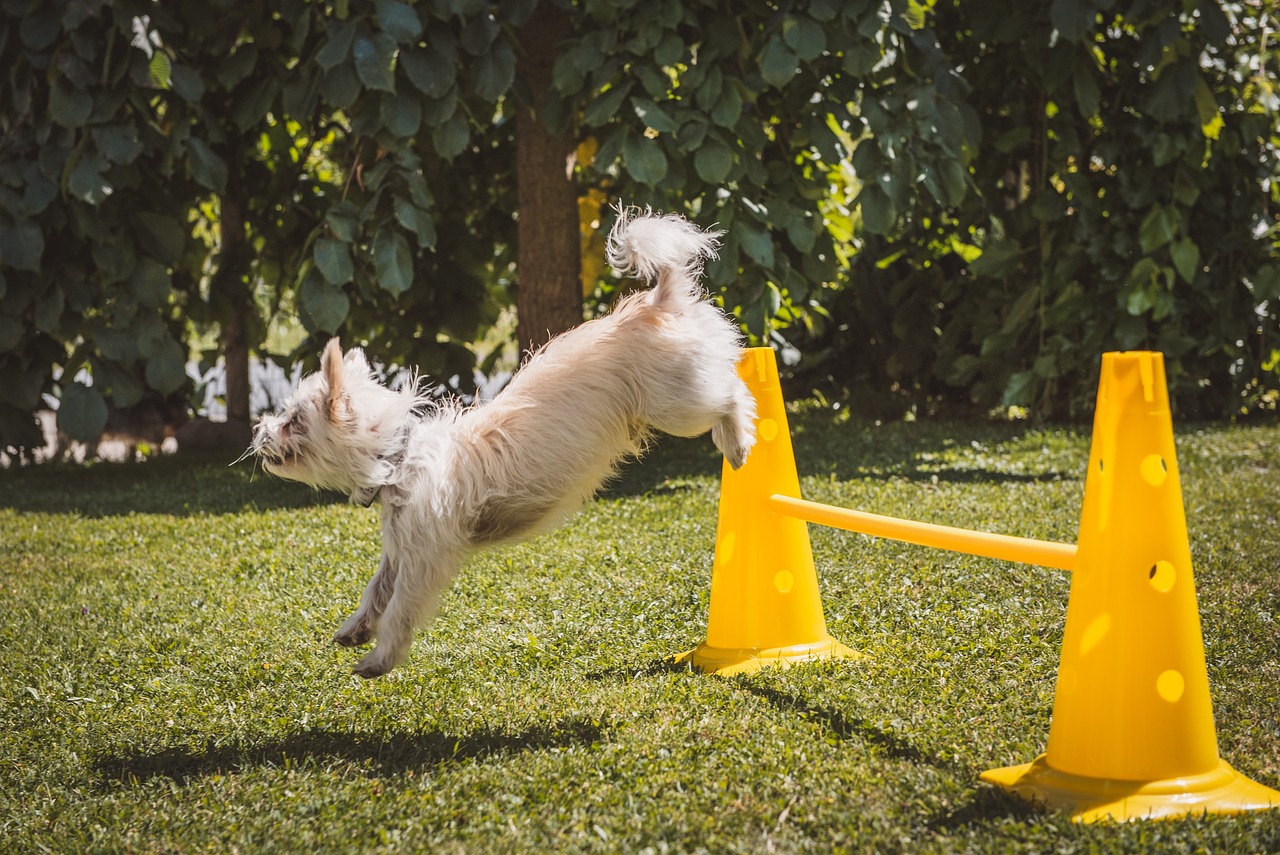
Strength and Conditioning
When it comes to self-defense, the importance of cannot be overstated. These two elements work hand in hand to enhance your performance during a confrontation. Imagine being in a high-pressure situation where every second counts. If your body is conditioned to handle stress and your muscles are strong enough to execute techniques effectively, you'll have a significant advantage. But how do you achieve this optimal state of readiness? It starts with a well-rounded approach to training that focuses on both strength and conditioning.
Strength training is essential for building the muscle mass and power needed to defend yourself. Think of your muscles as the engine of a car; the more powerful the engine, the better the performance. Compound exercises, such as squats, deadlifts, and bench presses, are particularly effective as they engage multiple muscle groups simultaneously. This not only builds strength but also improves coordination and balance, which are critical during self-defense situations. For example, a strong core allows you to maintain stability and execute movements with precision, whether you’re striking or grappling.
On the other hand, conditioning is like the fuel that keeps your engine running. It’s about enhancing your endurance so that you can sustain your efforts over time. A well-conditioned body can withstand the physical demands of a confrontation without succumbing to fatigue. Incorporating a mix of cardiovascular exercises, such as running, cycling, or swimming, into your routine will significantly boost your stamina. Additionally, exercises like circuit training can be particularly beneficial as they combine strength and conditioning into one effective workout. By alternating between strength exercises and aerobic activities, you train your body to recover quickly and maintain high levels of performance.
To give you a clearer picture, here’s a simple table outlining a balanced strength and conditioning program:
| Day | Strength Training | Conditioning |
|---|---|---|
| Monday | Squats, Deadlifts, Push-ups | 30 minutes of running |
| Wednesday | Bench Press, Rows, Lunges | Interval training (1 min sprint, 2 min walk) |
| Friday | Pull-ups, Planks, Kettlebell swings | Circuit training (strength + cardio) |
Incorporating this type of program into your routine not only builds strength but also enhances your overall conditioning, making you better prepared for any self-defense situation. Remember, consistency is key. Just like honing a skill, the more you practice your strength and conditioning, the more proficient you’ll become.
- How often should I train for strength and conditioning? Ideally, you should aim for at least three to four sessions per week, alternating between strength and conditioning exercises.
- Can I do strength and conditioning on the same day? Yes, many people combine both in a single workout, especially through circuit training or high-intensity interval training (HIIT).
- What if I’m new to strength training? Start with lighter weights and focus on proper form. Gradually increase the weight as you become more comfortable and stronger.
- Is cardiovascular fitness important for self-defense? Absolutely! Good cardiovascular health enhances your stamina, allowing you to react quickly and efficiently in high-pressure situations.
Frequently Asked Questions
- What is stamina, and why is it important in self-defense?
Stamina is the ability to sustain prolonged physical or mental effort. In self-defense, having good stamina can be a game changer. It helps you maintain your strength, agility, and focus during confrontations, making it easier to escape danger or defend yourself effectively.
- How does physical endurance affect self-defense performance?
Physical endurance is crucial in self-defense situations. It allows you to perform techniques repeatedly without tiring out. This means you can react quicker and maintain your effectiveness, even when the pressure is on. Think of it like a marathon runner who can keep going while others are out of breath!
- What role does cardiovascular fitness play in self-defense?
Cardiovascular fitness enhances your body's ability to deliver oxygen to your muscles, which is essential during high-intensity situations. By improving your cardiovascular health through exercises like running or cycling, you can boost your stamina and ensure you're ready to handle any self-defense scenario.
- How can I improve my muscular endurance for self-defense?
Improving muscular endurance involves specific strength training exercises that allow you to perform self-defense moves without fatiguing quickly. Incorporating exercises like push-ups, squats, and resistance training into your routine can build the muscle stamina needed for effective self-defense.
- Is mental stamina important in self-defense?
Absolutely! Mental stamina is just as vital as physical endurance. It helps you stay calm and focused under pressure, which can be crucial in a self-defense situation. Developing mental resilience through techniques like mindfulness and visualization can enhance your ability to respond effectively when it counts.
- What is interval training, and how does it help build stamina?
Interval training involves alternating between intense activity and rest periods. This method is fantastic for building both cardiovascular fitness and overall stamina. By pushing your limits in short bursts, you train your body to recover quickly and perform better in high-pressure scenarios, just like a sprinter who knows when to sprint and when to recover!
- How can strength and conditioning routines enhance my self-defense capabilities?
Strength and conditioning routines are essential for enhancing stamina and overall performance. A balanced approach to strength training helps you build the necessary muscle endurance and power required for effective self-defense. Think of it as building a strong foundation for a house; without it, everything else can crumble!

